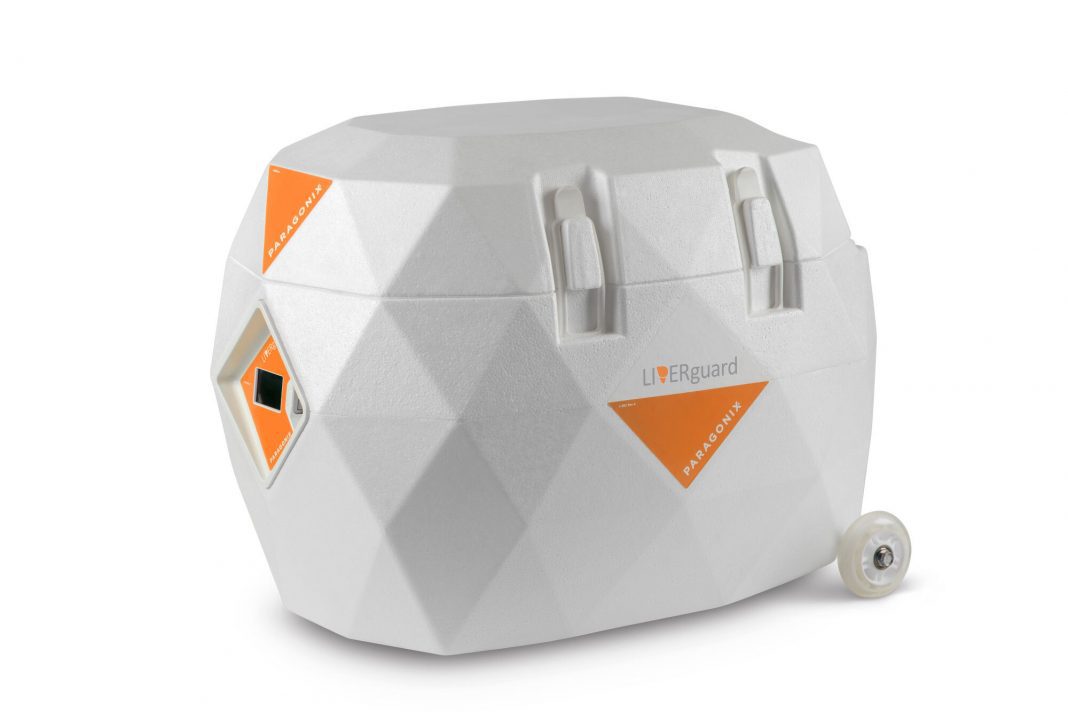Paragonix Technologies, the leading provider of donor organ preservation and transport systems, announces the clinical and commercial launch of LIVERguard™ Donor Liver Preservation System in both the US and Europe, along with the launch of its clinical global registry, GUARDIAN-LIVER (Global Utilization And Registry Database for Improved preservAtion of doNor LIVERs).
The LIVERguard™ System provides a highly controlled, state-of-the art environment for hypothermic liver preservation, coupled with real-time digital monitoring to safeguard a donor liver throughout the transplant journey from donation to transplantation. Like all Paragonix systems, the LIVERguard™ System represents a fundamental advance over the use of ice and off-the-shelf coolers that have been the standard-of-care in organ transplantation for over 50 years. Abdominal transplant teams throughout the US and Europe will now have access to an FDA cleared and CE marked hypothermic liver preservation device.
The commercial availability of the LIVERguard™ system aligns with the launch of the GUARDIAN-LIVER global registry, a comprehensive study that seeks to evaluate a missing piece of the organ procurement process: the impact of methods and technologies used for liver preservation and transportation and their contribution to the clinical outcome and success of transplant surgery. At the outset of the program, a total of ten leading Liver Transplant Centers have joined the GUARDIAN-LIVER Registry.
“We are very excited to be one of the first centers in this registry, evaluating this promising technology in organ preservation for our patients in desperate need of a liver transplant.” says Dr. Ali Zarrinpar, Associate Professor of Surgery in the Division of Transplantation and Hepatobiliary Surgery at the University of Florida.
Studies have shown ice storage can result in transport conditions close to 0°C, below the 4-8°C commonly cited as a standard in the literature.1 The LIVERguard system provides a highly controlled transport environment validated to maintain temperatures of 4-8°C. The device’s performance is continuously reported to the user and is captured in a data log download following the procurement.
Length of Cold Ischemic Time (CIT), the time the donor organ is out of the body, is commonly cited as a direct influence on outcomes in liver transplantation. Longer CIT is associated with an increased risk of a variety of clinical complications, including: increased risk of Primary Non-Function, increased Early Allograft Dysfunction, prolonged length of stay, and an increased risk of graft loss.2-4
“Donor livers are being shared across large geographies,” said Lisa Anderson, PhD, President & CEO of Paragonix Technologies. “This means livers are broadly shared among Organ Procurement Organizations and transplant teams and it creates an obvious need and opportunity to standardize methods of preservation. The LIVERguard system is designed to ensure consistent and repeatable standardized cold storage of livers, regardless of teams, time, geography, or the unforeseen.
“Further, Paragonix will be unrelentingly diligent in the pursuit of identifying and measuring the impact of advanced liver preservation with the GUARDIAN-LIVER global registry. The impact of both the GUARDIAN-HEART and -LUNG registries has been clear to transplant teams around the world. Insights gathered from the initial heart registry not only inform new approaches to organ preservation but show that preservation could be crucial in overcoming other considerations of the transplant procedure that may be challenging, such as donor and recipient characteristics, and ischemic time. Expanding this research into liver and the abdominal market is the next logical step and an exciting opportunity to better understand the impact of organ preservation conditions on patient outcomes.”
